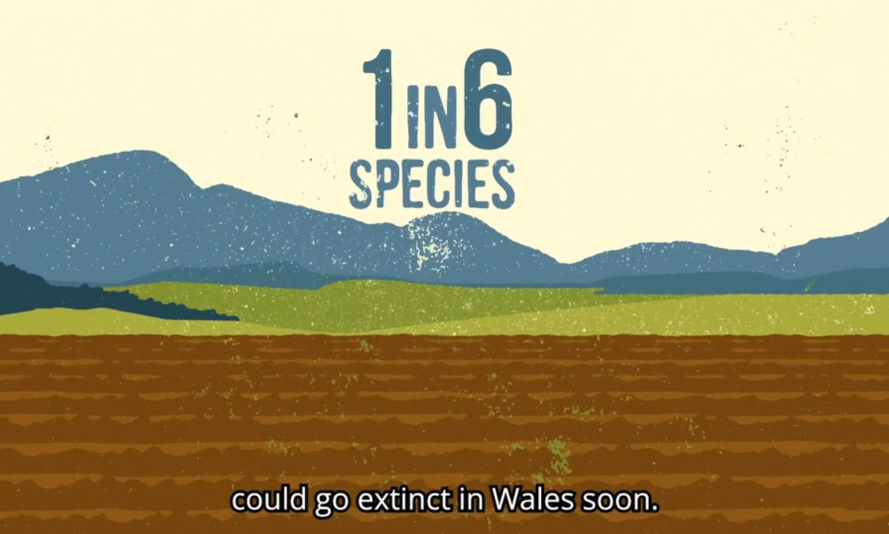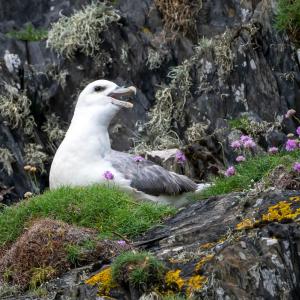
The story so far
Over the last few years, we have campaigned for Welsh Government to support farmers in a transition towards more sustainable agricultural practices which works with nature, rather than against it, - to restore biodiversity and help tackle climate change, ensure a healthy food and farming system for generations to come, and to secure high-quality food production in the heart of our communities (as demonstrated by our Land of our Future case study farmers).

The Sustainable Farming Scheme is Welsh Government’s proposal for how public money should be used to support agriculture in Wales. We believe the scheme should be improving food and farming systems, supporting regenerative, nature friendly farming, and putting people - farmers, food producers and citizens – at the heart of solutions. Polling shows that 60% of people in rural Wales also believe financial support should only be given if farmers make changes to protect nature & climate
In early 2024 however, nature-friendly farmers across Wales were telling us that the plans for the SFS, which will be published in 2025, were not enough to ensure those already farming in a world-leading regenerative way are able to continue to do so. In February 2024, Wildlife Trusts Wales and WWF Cymru together provided an e-action platform to urge the public to take part in the final consultation on the Sustainable Farming Scheme.
Watch our explainer on the Sustainable Farming Scheme


The cost of a rapidly changing climate
There is growing evidence that nature-friendly farming methods increase land resilience and enable farmers to better mitigate and adapt to drought and floods driven by climate change. Those extreme weather events are now known to be costing the agricultural sector in Wales millions of pounds each year. The Extreme Weather and its Impact on Farming Viability in Wales report, produced by Farmlytics and commissioned by WWF Cymru, found that changing weather patterns cost farmers £175 million in 2018 alone.
Over the summer, and following a change in leadership, Welsh Government announced they were delaying the implementation of the Sustainable Farming Scheme to 2026 to work on new proposals following strong push back from farmers via the recent protests and consultation responses.

The change you want to see
We commissioned a survey to find out what the Welsh public wanted to see from the new Sustainable Farming Scheme. It was revealed that 66% of Welsh adults wanted to see Welsh Government provide more support to Welsh farmers to help them tackle the impacts of climate change on food production.
The YouGov survey also showed that the Welsh public want to turn the tide on biodiversity loss in Wales. When asked what the Sustainable Farming Scheme should or should not aim to do, 69% said it should support restoring peatlands and other semi-natural habitats, while 67% said it should support planting more trees.
As the SFS consultation neared its close, we delivered a petition to Welsh Government signed by over 2,500 of you calling for a Sustainable Farming Scheme which restores nature, tackles climate change, and ensures a sustainable future for communities, farmers and food production in Wales.

The announcement
Despite public demand for supporting farmers to transition to nature-friendly farming practices, the Welsh Government announced significant regressions for both nature and climate in their latest proposals for the Scheme this November, whilst also leaving farmers at greater risk of climate induced weather events.
Farms and communities across Wales were hit with extreme floods the same day the Welsh Government announced their new proposals, yet the link between extreme weather events and how important the Sustainable Farming Scheme should be to build resilience to those events was not sufficiently recognised.
Thousands of people across Wales, including nature friendly farmers, raised their voices through our petitions and polling. They’re demanding that their hard-earned taxes are used for a Sustainable Farming Scheme that restores nature, tackles climate change, and ensures a sustainable future for communities, farmers and food production.

what's next?
We are in a dual climate and nature emergency, and as we go into 2025, we will continue to monitor progress and seek to influence the final version of the Sustainable Farming Scheme before it is launched.
One of the ways we will do this is by focusing on key habitats, and how the Scheme (alongside other key delivery mechanisms) can make a big difference to the future of Welsh nature. Our rivers and coastal waters are important habitats for Welsh wildlife, local community wellbeing, and a healthy river system helps tackle climate change and mitigate against extreme weather.
But our Welsh rivers are dying, and the impact on wildlife is stark. In 2023, Natural Resources Wales’ latest salmon stock assessments recorded the lowest catches of both salmon and sea trout since consistent records began in 1970s. This represents an approximate 70% decline over the past ten years alone.
Water pollution is complex, and key contributors are both unsustainable agriculture and the water industry. Join us as we put pressure on ALL stakeholders to work together to make the changes needed to clean up our watery habitats once and for all.

 Land of Our Future
Land of Our Future
 WWF Cymru Land of Our Future Stories
WWF Cymru Land of Our Future Stories
 WWF Cymru 2024 Wrapped
WWF Cymru 2024 Wrapped